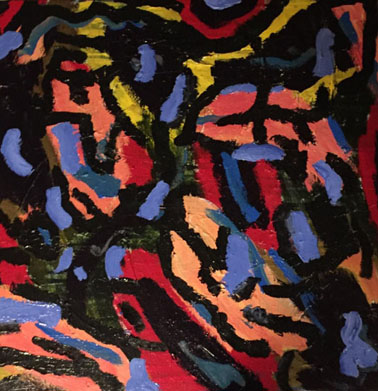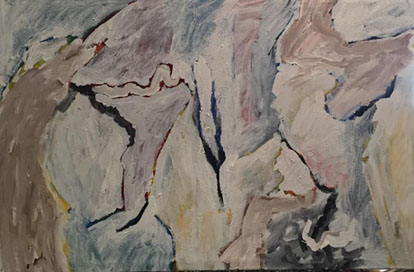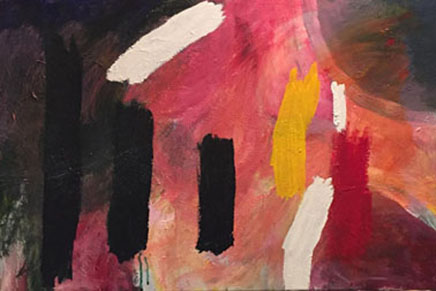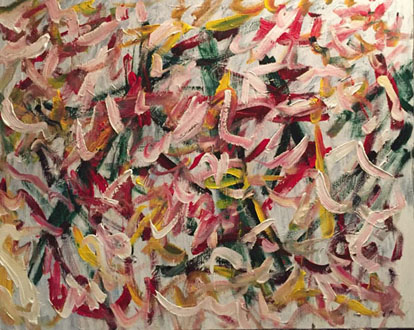Biggest news about new Liberal cabinet in Ottawa is when Justin Trudeau was asked if he’ll lead his party in the next election he just smiled and said “YES”
Oct 27th, 2021 | By Randall White | Category: In BriefNORTH AMERICAN NOTEBOOK — RANDALL WHITE, FERNWOOD PARK, TORONTO. OCTOBER 27, 2021. Regional representation was at least once said to be a key feature of political cabinet making in Canada’s particular version of parliamentary democracy, coast to coast to coast.
From this angle the Justin Trudeau Liberal cabinet sworn into office on October 26, 2021 somewhat over-represents Ontario and especially Quebec and Atlantic Canada. And its under-represented Western Canada profile is strongly tilted towards BC.
More exactly, Statistics Canada reports that as of the third quarter of 2021 : Ontario has 38.8% of the Canada-wide population ; Western Canada has 32.0% ; Quebec has 22.5% ; and Atlantic Canada has 6.4%.
In the new Trudeau cabinet Ontario has on my calculations 16 of the 39 positions or 41.0% (vs. 38.8% pop). Quebec has 11 or 28.2% (22.5% pop). Western Canada has 6 or 15.4% (32.0% pop, and 4 of the 6 Western members are from BC). And Atlantic Canada has another 6 or 15.4% (6.4% pop).
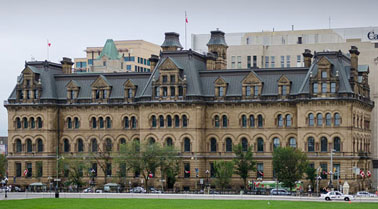
The prime minister, whose unique power has always been that he or she actually appoints “his or her” cabinet, could reasonably protest that he can only appoint Liberals to his Liberal cabinet from provinces where they are elected. Saskatchewan, eg, elected no Liberals on September 20, 2021. So it cannot have any members in a Liberal cabinet.
Comments on the new 2021 cabinet for the new (and second in a row) Liberal minority government have often enough alluded to the prospect that just who is cabinet minister of what does not matter all that much, because PM Justin Trudeau and his Office of the Prime Minister at 80 Wellington Street in downtown Ottawa finally call all the shots that matter.
This prime ministerial domination is of ancient vintage. According to Canada’s still finest historian, Harold Innis, the first prime minister of the present confederation of 1867 “regarded the ideal cabinet as one over which he held incriminating documents such as might place each member in the penitentiary.”
Yet, as someone who has spent a working lifetime sometimes in and often around Canadian provincial and federal bureaucracies, I feel I can testify that governments in our time do far too many complicated and often difficult things for this prime ministerial domination theory to be much more than superficially convincing.
In their day to day work governments in Canada today deliver diverse services, goods, and even cheques to the people (and not always badly), on the basis of calculations beyond the narrow universe of profit-maximizing economics. In this work democratically elected cabinet ministers in the various branches of the public bureaucracy typically make the ultimate managerial decisions.
A cabinet minister who manages to do her or his managerial job well enough — and stay out of political trouble and/or avoid other negative media coverage — can reasonably expect considerable autonomy. And it is cabinet ministers and their offices and the legions of bureaucrats at their command, not the hard-working staffs in the offices of “first ministers,” who typically accomplish whatever innovative things governments occasionally manage to do.
Some theory of this sort, at any rate, appears to be driving PM Trudeau’s appointments to his rather strategic new “lean forward” cabinet of October 26, 2021. He has assigned 38 different elected Liberal Members of Parliament responsibility for various key aspects of the “progressive plan” for Canada’s near future, that he referred to after his at least second minority-government victory (and third consecutive triumph as prime minister) on September 20, 2021.
For an intriguing first look at the various details of this plan, just quickly scan through the list of new cabinet ministers and their exact new titles in the APPENDIX : NEW CANADIAN CABINET, OCTOBER 26, 2021 (at the very end of the full-length version of this post below).
Meanwhile, as just one example, one lately much-discussed challenge of the new Trudeau Liberal minority government is to show that it is prepared to take serious action on its commitments to “reconciliation” with Indigenous peoples. PM Trudeau’s current big cut at this issue is to appoint the now experienced Marc Miller from Ville-Marie— Le Sud-Ouest—Île-des-Soeurs in Quebec as Minister of Crown-Indigenous Relations. (A misleading job title in my own view. But in the media availability session after the swearing-in ceremony on October 26 the Hon. Mr. Miller talked about how “land” was ultimately at the bottom of Indigenous reconciliation. And this at least raises the prospect of some quite innovative if also thorny, difficult, and challenging Indigenous policy action, in some near enough future?)
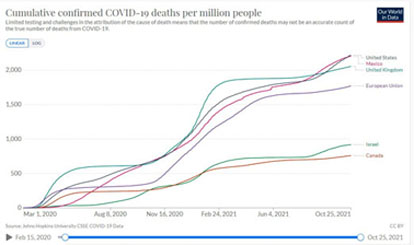
Meanwhile again, the most important political news on October 26 almost certainly did come when, in the media availability session after the swearing-in ceremony, a reporter asked PM Trudeau if he intended to lead his party in the next federal election. The prime minister flashed yet another of the hard, shield-like but confident smiles he seems to be putting on often lately, and just said, without any hint of hesitation, “YES.”
After six years as prime minister Justin Trudeau seems to have settled into a role as forward-looking Master of Ceremonies, for a frequently well-enough-seasoned (and loyal) but also open-ended collection of (sometimes) innovative cabinet ministers. They may ultimately give his Liberal Party of Canada another majority government in the next federal election, whenever that takes place. But for the moment only time and fortune can tell whether this particular government-and-politics gamble will finally deliver.
APPENDIX : NEW CANADIAN CABINET, OCTOBER 26, 2021
In “Order of Precedence” :
The Right Honourable Justin Trudeau, Quebec, Prime Minister of Canada
(1) The Honourable Chrystia Freeland, Ontario, Deputy Prime Minister and Minister of Finance
(2) The Honourable Lawrence MacAulay, Prince Edward Island, Minister of Veterans Affairs and Associate Minister of National Defence
(3) The Honourable Carolyn Bennett, Ontario, Minister of Mental Health and Addictions and Associate Minister of Health
(4) The Honourable Dominic LeBlanc, New Brunswick, Minister of Intergovernmental Affairs, Infrastructure and Communities
(5) The Honourable Jean-Yves Duclos, Quebec, Minister of Health
(6) The Honourable Marie-Claude Bibeau, Quebec, Minister of Agriculture and Agri-Food
(7) The Honourable Mélanie Joly, Quebec, Minister of Foreign Affairs
(8) The Honourable Diane Lebouthillier, Quebec, Minister of National Revenue
(9) The Honourable Harjit S. Sajjan, British Columbia, Minister of International Development and Minister responsible for the Pacific Economic Development Agency of Canada
(10) The Honourable Carla Qualtrough, British Columbia, Minister of Employment, Workforce Development and Disability Inclusion
(11) The Honourable Patty Hajdu, Ontario, Minister of Indigenous Services and Minister responsible for the Federal Economic Development Agency for Northern Ontario
(12) The Honourable François-Philippe Champagne, Quebec, Minister of Innovation, Science and Industry
(13) The Honourable Karina Gould, Ontario, Minister of Families, Children and Social Development
(14) The Honourable Ahmed Hussen, Ontario, Minister of Housing and Diversity and Inclusion
(15) The Honourable Ginette Petitpas Taylor, New Brunswick, Minister of Official Languages and Minister responsible for the Atlantic Canada Opportunities Agency
(16) The Honourable Seamus O’Regan Jr., Newfoundland and Labrador, Minister of Labour
(17) The Honourable Pablo Rodriguez, Quebec, Minister of Canadian Heritage and Quebec Lieutenant
(18) The Honourable Bill Blair, Ontario, President of the Queen’s Privy Council for Canada and Minister of Emergency Preparedness
(19) The Honourable Mary Ng, Ontario, Minister of International Trade, Export Promotion, Small Business and Economic Development
(20) The Honourable Filomena Tassi, Ontario, Minister of Public Services and Procurement
(21) The Honourable Jonathan Wilkinson, British Columbia, Minister of Natural Resources
(22) The Honourable David Lametti, Quebec, Minister of Justice and Attorney General of Canada
(23) The Honourable Joyce Murray, British Columbia, Minister of Fisheries, Oceans and the Canadian Coast Guard
(24) The Honourable Anita Anand, Ontario, Minister of National Defence
(25) The Honourable Mona Fortier, Ontario, President of the Treasury Board
(26) The Honourable Steven Guilbeault, Quebec, Minister of Environment and Climate Change
(27) The Honourable Marco E. L. Mendicino, Ontario, Minister of Public Safety
(28) The Honourable Marc Miller, Quebec, Minister of Crown-Indigenous Relations
(29) The Honourable Dan Vandal, Manitoba, Minister of Northern Affairs, Minister responsible for Prairies Economic Development Canada and Minister responsible for the Canadian Northern Economic Development Agency
(30) The Honourable Omar Alghabra, Ontario, Minister of Transport
(31) The Honourable Randy Boissonnault, Alberta, Minister of Tourism and Associate Minister of Finance
(32) The Honourable Sean Fraser, Nova Scotia, Minister of Immigration, Refugees and Citizenship
(33) The Honourable Mark Holland, Ontario, Leader of the Government in the House of Commons
(34) The Honourable Gudie Hutchings, Newfoundland and Labrador, Minister of Rural Economic Development
(35) The Honourable Marci Ien, Ontario, Minister for Women and Gender Equality and Youth
(36) The Honourable Helena Jaczek, Ontario, Minister responsible for the Federal Economic Development Agency for Southern Ontario
(37) The Honourable Kamal Khera, Ontario, Minister of Seniors
(38) The Honourable Pascale St-Onge, Quebec, Minister of Sport and Minister responsible for the Economic Development Agency of Canada for the Regions of Quebec
SOURCES : Prime Minister of Canada ; Canadian House of Commons.
